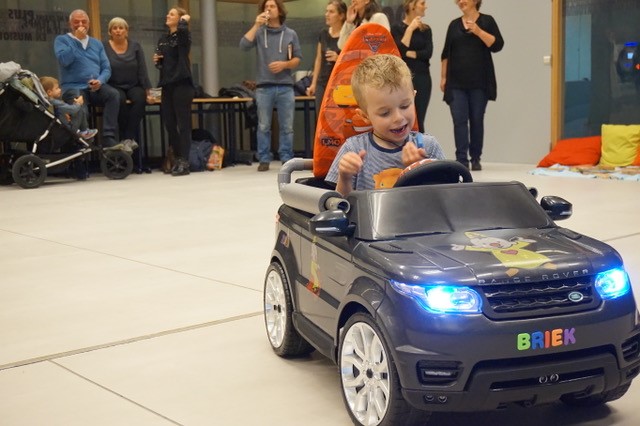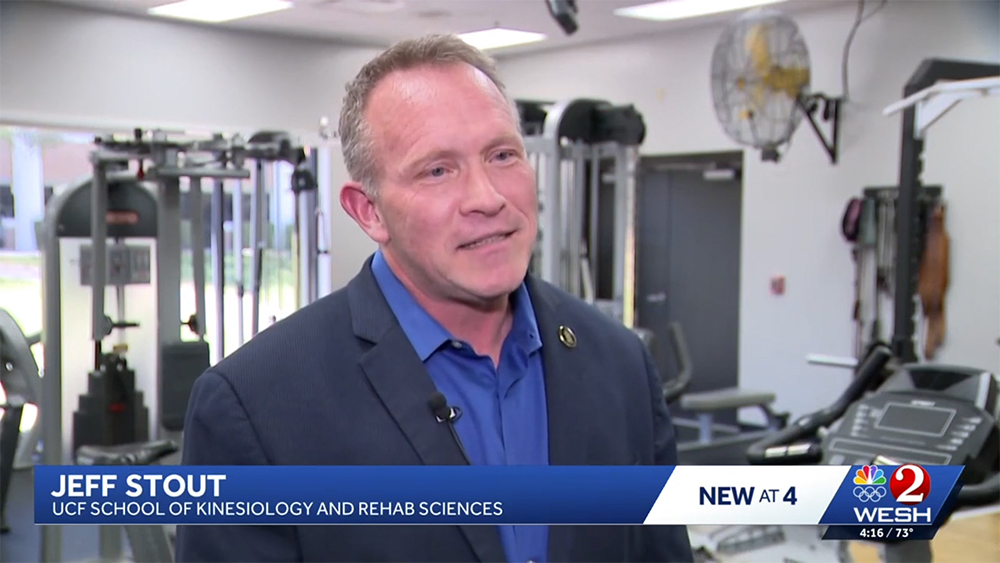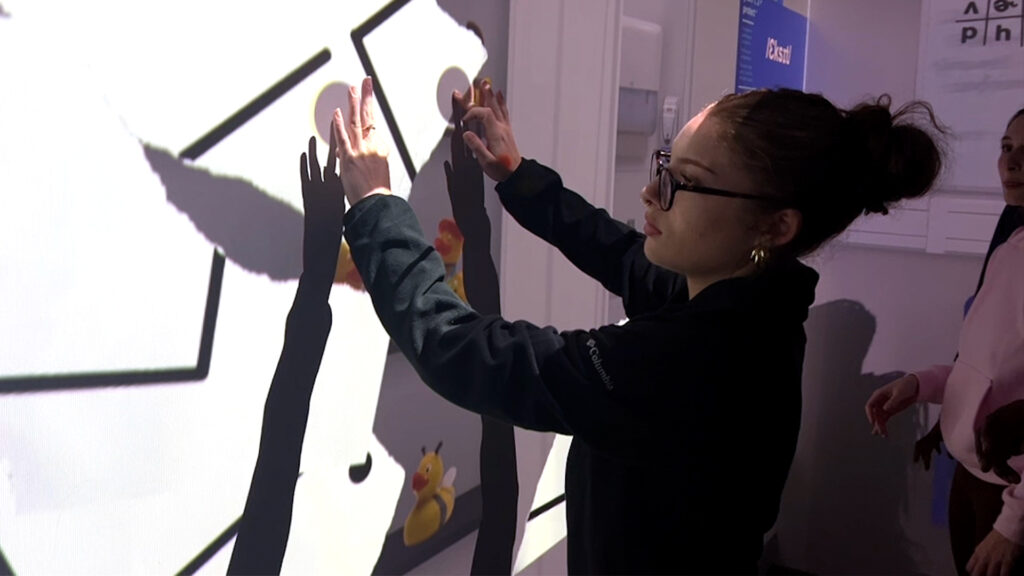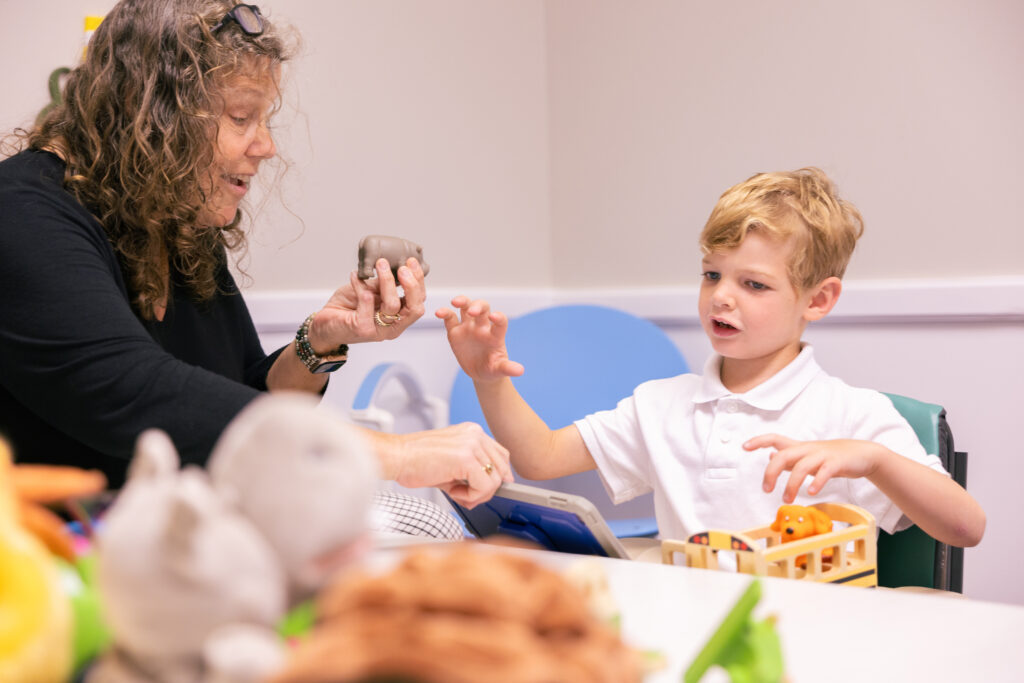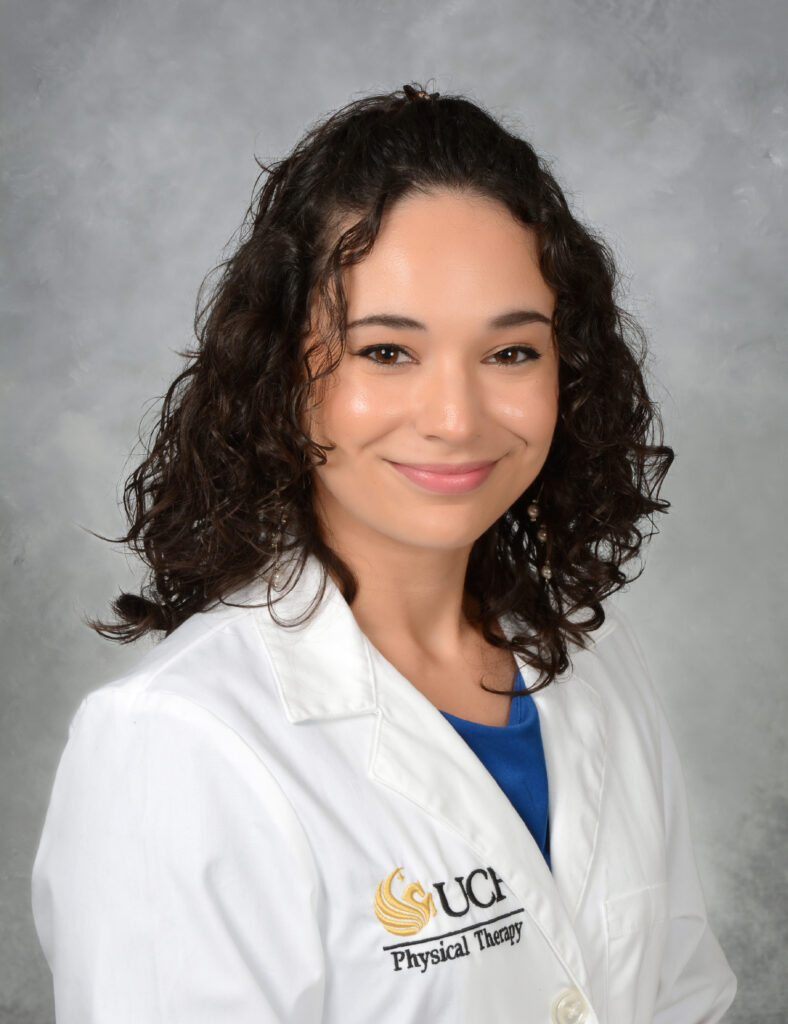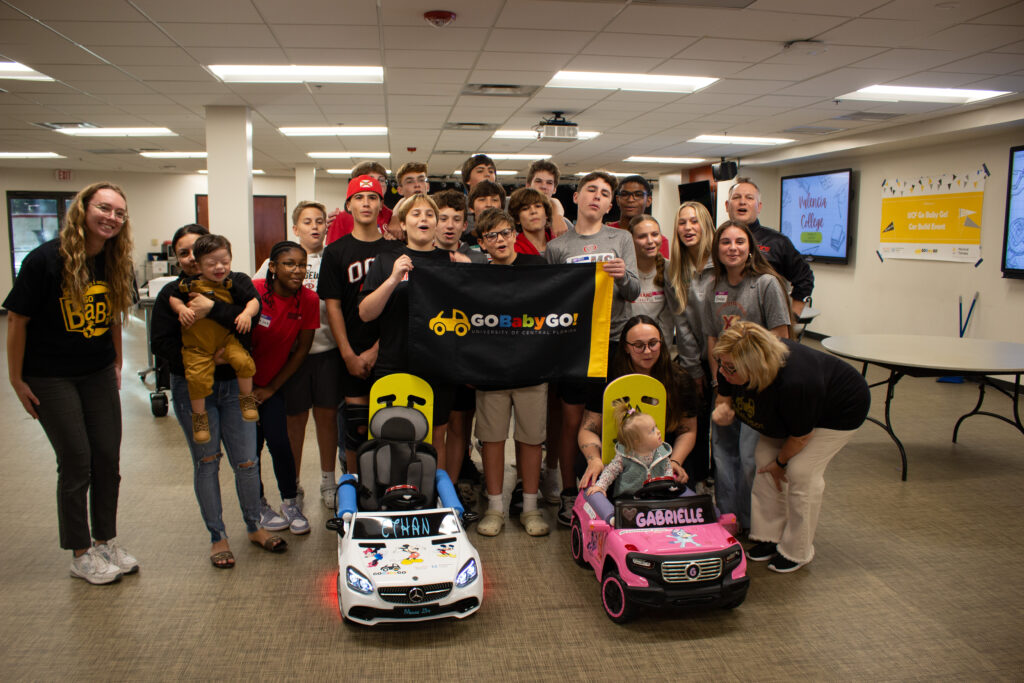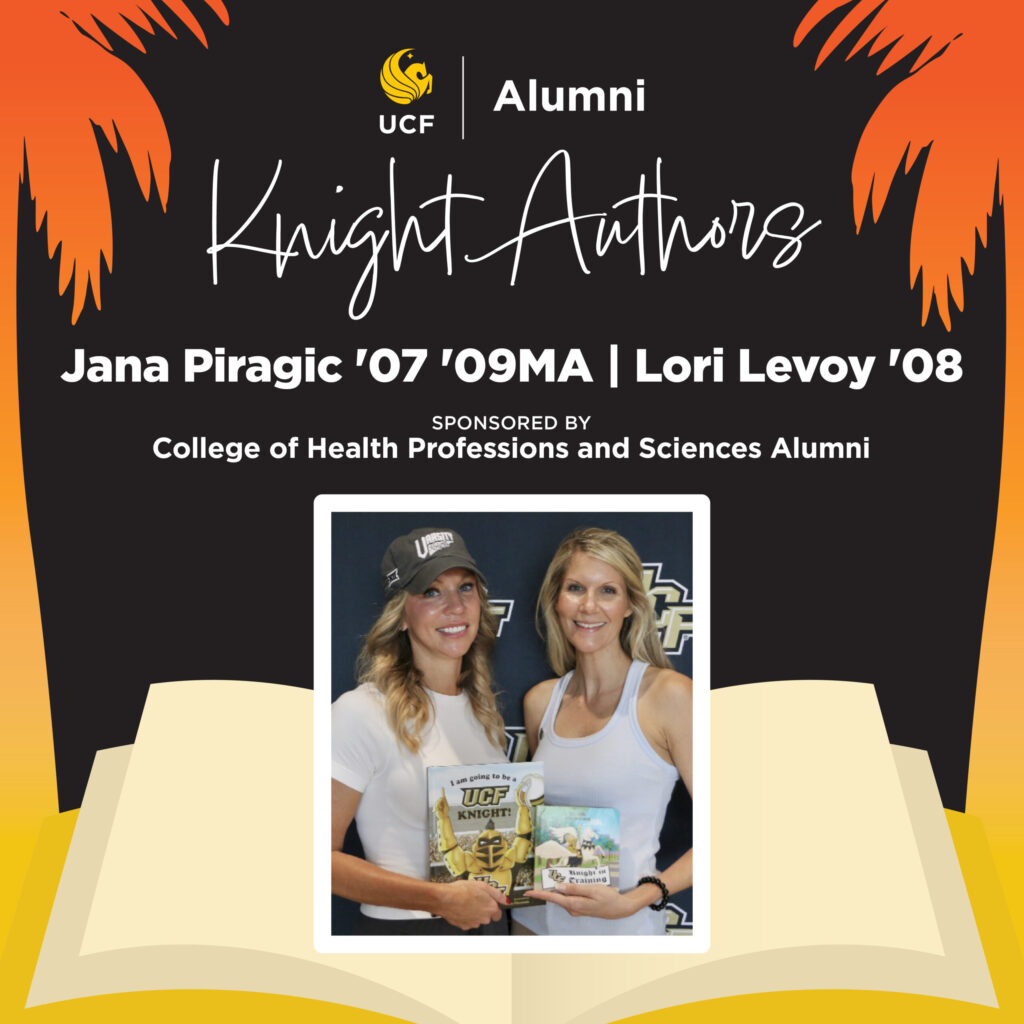The first Belgian chapter of Go Baby Go!, an outreach program that works to give children with mobility impairments more freedom, launched this week thanks to the help of the University of Central Florida.
Vives University College presented 6-year-old Briek Torresan from Belgium with the chapter’s first modified ride-on toy vehicle on Oct. 24. Go Baby Go! chapters around the world modify Fischer-Price and other toy electric cars by adding lumbar support and a button on the steering wheel so the child can go with the push of a button instead of a foot pedal. These modifications allow kids with mobility impairments to operate the toy vehicles on their own and ultimately, learn from their surroundings.
“The cars open the child’s concept of exploration,” said Jennifer Tucker, director of UCF’s Go Baby Go! chapter. “We often hear their first laugh, we see more interaction between the child and their siblings, and more.”
When mobility is limited, children wait for the world to come to them. Go Baby Go! creates a way for children to explore the world and learn on their own, Tucker said.
Vives became a UCF partner in December 2015 when an interuniversity agreement was established. While visiting UCF last year to explore partnership opportunities, Vives faculty were introduced to Go Baby Go!. Martine Vanryckeghem, a Belgium native and professor of Communication Sciences and Disorders at UCF, made it a point to introduce the Vives faculty to Tucker, who founded UCF’s Go Baby Go! chapter in 2015.
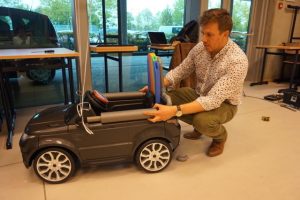 “We were mostly touched by the social effect … and we were impressed by hearing witnesses talking about the fact that a child starts to produce the first sounds as an effect of driving the car,” said Kristof Dewaele, head of International Office – Biotechnology & Paramedical Professions at Vives. “Of course, seeing a video of a kid smiling when driving the car might be the most convincing argument to start a Go Baby Go! Belgium project.”
“We were mostly touched by the social effect … and we were impressed by hearing witnesses talking about the fact that a child starts to produce the first sounds as an effect of driving the car,” said Kristof Dewaele, head of International Office – Biotechnology & Paramedical Professions at Vives. “Of course, seeing a video of a kid smiling when driving the car might be the most convincing argument to start a Go Baby Go! Belgium project.”
Go Baby Go! at Vives is shaping up to be an interdisciplinary effort, said Hilde Roeyers, chair of Vives’ Speech Language Pathology/Audiology Bachelor of Science program. To modify its first car, the Vives chapter collaborated with the college’s Department of Electronics and Industrial Sciences and Technology to rewire the car and add sensors to prevent Briek from driving into objects. Students, lecturers and researchers from Vives’ speech language pathology and health care education departments also will contribute to the Go Baby Go! chapter.
The new chapter also is intended to create collaborative research opportunities with UCF. For instance, qualitative research could be conducted on how involvement in an outreach program like Go Baby Go! impacts college students who contribute to it, said Tucker.
“We believe students gain a greater perspective on what it is they’re fighting for in this career,” she said. “We [at UCF] haven’t been able to slow down to lay the infrastructure for research, but this partnership gives us an opportunity to do that.”
Vanryckeghem moved to the United States from Belgium in 1989 and since has maintained professional relationships back home that led to the interuniversity agreement and now to the new Go Baby Go! chapter. Beyond academia and research, Go Baby Go! gives her a chance to help teach the children in her family back home in Belgium about giving back. In lieu of birthday and holiday gifts, she has asked her great nieces, nephews and goddaughter, all between the ages of 3 and 6, to save their money in their piggy banks to donate to Vives’ Go Baby Go!. Vanryckeghem and her family sponsored the cost of Briek’s car.
Vives hopes to build 10 cars in its first year, and will look to community donations – including a nationwide philanthropic tradition in Belgium called Warmest Week before Christmas – to raise money to modify more cars for children.
